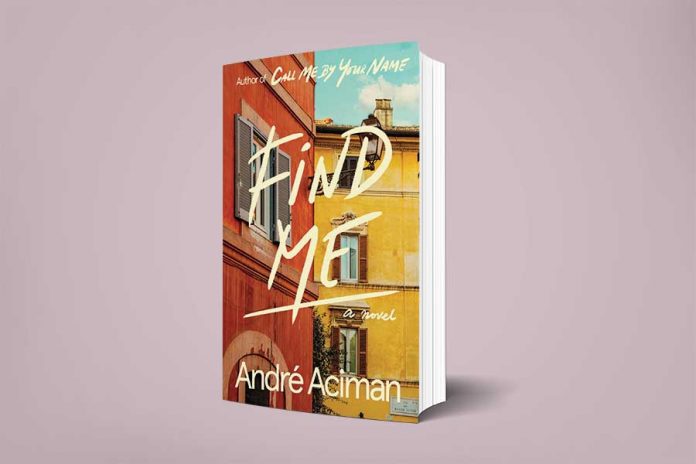André Aciman, author of “Call Me by Your Name,” achieved the kind of success most writers dream about. His first novel (after several nonfiction books) was a well-reviewed, award-winning, best-seller. Set in 1983 in Italy, “Call Me,” depicted the heartbreaking summer romance between the teenage Elio and Oliver, a visiting American doctoral student. Ten years later, the book was made into a beloved, Oscar-winning film by out gay director Luca Guadagnino. Aciman had a cameo in the film as Mounir, one half of a gay couple, but he let out gay filmmaker James Ivory to pen the screenplay.
While the author has published three additional books since his breakout fiction debut, his latest novel, “Find Me,” is the sequel to “Call Me.” It reunites Elio and Oliver years after their relationship ended. Notably, however, the men do not meet until late in the book. The first half of “Find Me” concerns Samuel, Elio’s father, beginning a relationship with Miranda, a young woman he meets on a train in Italy. The second part of “Find Me” is about Elio’s budding romance with Michel, an older gentleman in France. And the third part of the book has the married (to a woman) Oliver attending a going-away party in New York City, where he is attracted to two guests, Erica and Paul. How these characters “find” and think about love forms the drama of each narrative.
In advance of his appearance at the Free Library of Philadelphia on Dec. 3, Aciman discussed the impetus for his new book, its structure, and themes in an email exchange.
When did the idea to do a sequel come about? Did you feel pressure to pen a sequel given the legion of “Call Me” fans?
I had wanted to write about Elio and Oliver as soon as I finished writing “Eight White Nights” [Aciman’s second novel] around 2009. I attempted something that felt like a sequel, but then realized that I had no story to tell since a greater part of the plot for “Call Me by Your Name” was devoted to the near hopeless attempts by Elio to figure out what he wanted from Oliver and how to go about telling Oliver of his feelings for him. So, I abandoned the project the first time, started it a second time, and a third, each time proving a failure. I was basically rewriting “Call Me.” Then, in the fall of 2016, I began writing about a 50+-year-old man on a train who meets a younger woman. I had no idea where I was going with this until quite a few pages later. I realized that this man was going to meet his son in Rome. And then I had a brainstorm [to make it Elio]. There was no connection with the film. The only thing that I borrowed and was inspired by from the film was the father’s name. In “Call Me,” he is referred to as Prof. P. In the film, his name is Samuel.
Can you talk about your approach to this “sequel”? I appreciate that you make us feel like Elio and Oliver by keeping us waiting and longing for reconnection.
I drew my inspiration from the last pages of “Call Me by Your Name.” I knew Elio and Oliver had to meet 15 — and later 20 — years after their [initial] separation. I was filling in the blanks left by the first novel. But I like the fact that this forces readers to feel somewhat lost through the first-person narrators. In feeling lost, yes, they feel the same enduring urgency to reconnect that both Elio and Oliver do.
“Find Me” is written in sections rather than as a continuous narrative like your other novels. Can you discuss penning connecting stories that reflect and refract one another?
I like fragmentary takes on the lives of my characters, rather than a full drawn-out chronicle. Fragments allow us to see very deeply into their lives without the necessity of having to draw out what appears in one fragment and attempting to reconnect it in one sequential narrative.
“Find Me” has each character, Sami, Elio and Oliver, finding some new person who impacts their lives and changes them. Can you talk about this theme in your work, which echoes back to “Call Me”?
People not only change us — to the extent that we do actually change at all — but they make us like who we are. New people bring new vistas, new landscapes, new adventures, new energy into our lives. In some cases, we realize we’ve been dead precisely because someone brings us back to life. “So, I’ve been dead all this time!” we say. Elio and Oliver have not led happy lives; they liked who they were together.
André Aciman discusses “Find Me” in conversation with Gary M. Kramer at the Free Library of Philadelphia, 1901 Vine Street, on Dec. 3 at 7:30 pm. For tickets and more information, visit: https://libwww.freelibrary.org/calendar/event/91560
